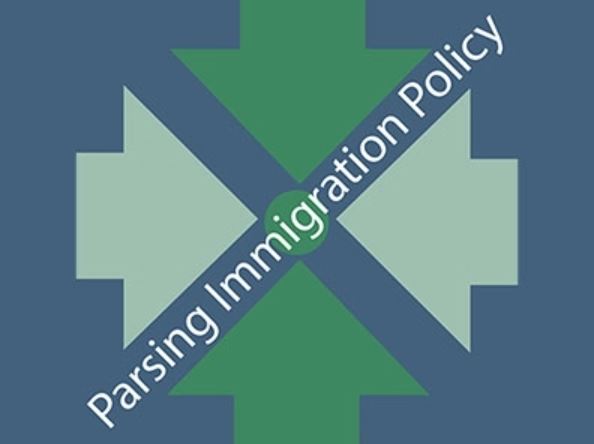Parsing Immigration Policy, Episode 20

n recognition of the 9/11 anniversary, the Center for Immigration Studies is publishing a new report by Todd Bensman, the Center’s senior national security fellow, analyzing the immigration failures which helped lead to the tragedy and examples of post-9/11 terrorists and others posing threats to U.S. interests who have weaponized travel visas and entry permits. In this week’s episode of Parsing Immigration Policy, Bensman discusses the role of immigration law in protecting the American people. He highlights the importance of the National Vetting Center and the national security implications of an open southern border. What further policy changes are needed to keep us safe?
Excerpt:
CIS Executive Director Mark Krikorian: The first thing I wanted to ask, just kind of a little personally, was where were you when 9/11 happened? I mean this is kind of like our generation’s version of where were you when JFK was shot? I was a year and a half or two years old … It’s the kind of thing my parents’ generation remember but for us 9/11 is really that kind of experience. Where were you? What do you remember about it that day?
Bensman: I was in Dallas, Texas working as a staff reporter for The Dallas Morning News, and my beat was FBI, Dallas FBI. And I was housed in a small office in the federal building in downtown Dallas. Of course, I was just getting ready for work that day at home when the planes hit and, of course, I was watching television with everybody else. My phone was blowing up. It was all about, what is the FBI doing in Dallas? Well it turns out quite a lot because the planes that were used were American Airlines planes, and American Airlines had its headquarters in Dallas, Texas.
Krikorian: Ahh, interesting.
Bensman: A lot of people might not know this, but the epicenter of the investigation was in Dallas, one of the major epicenters, because it was the American Airlines bureaucracy that had the manifests and was able to identify the hijackers right out of the Dallas FBI offices. Of course, I had sources and all my people at the FBI went into full crisis mode. I remember going straight to the field office headquarters and waiting in the smoking area for the SAC to come down for his cigarettes because I knew he would come have a smoke eventually. That was a non-smoking building. From that point on, just to cut to the chase, Dallas was sort of emblematic of what was happening at field offices across the country. Maybe a little bit more in Dallas because of American Airlines. Then they went into, for the next months and even years, arrest mode and immigration enforcement mode. The immigration courts were in the same building where I was housed. They were bringing all of their suspects into immigration court for deportation hearings. A lot of these were secret hearings, and I’d go down there to attend and they were closed for national security purposes. My newspaper and I mounted a big challenge. We were all offended by that… that they could close an American courtroom. And it just went like that. I spent a lot of time in immigration courts watching hearings over suspected jihadists who were not being charged with terrorism but various kinds of immigration violations.
Krikorian: Basically like going after Al Capone for his taxes…
Bensman: Exactly.
Krikorian: Interesting. So is that how you got into the issue of the nexus between immigration and national security? How did that come about?